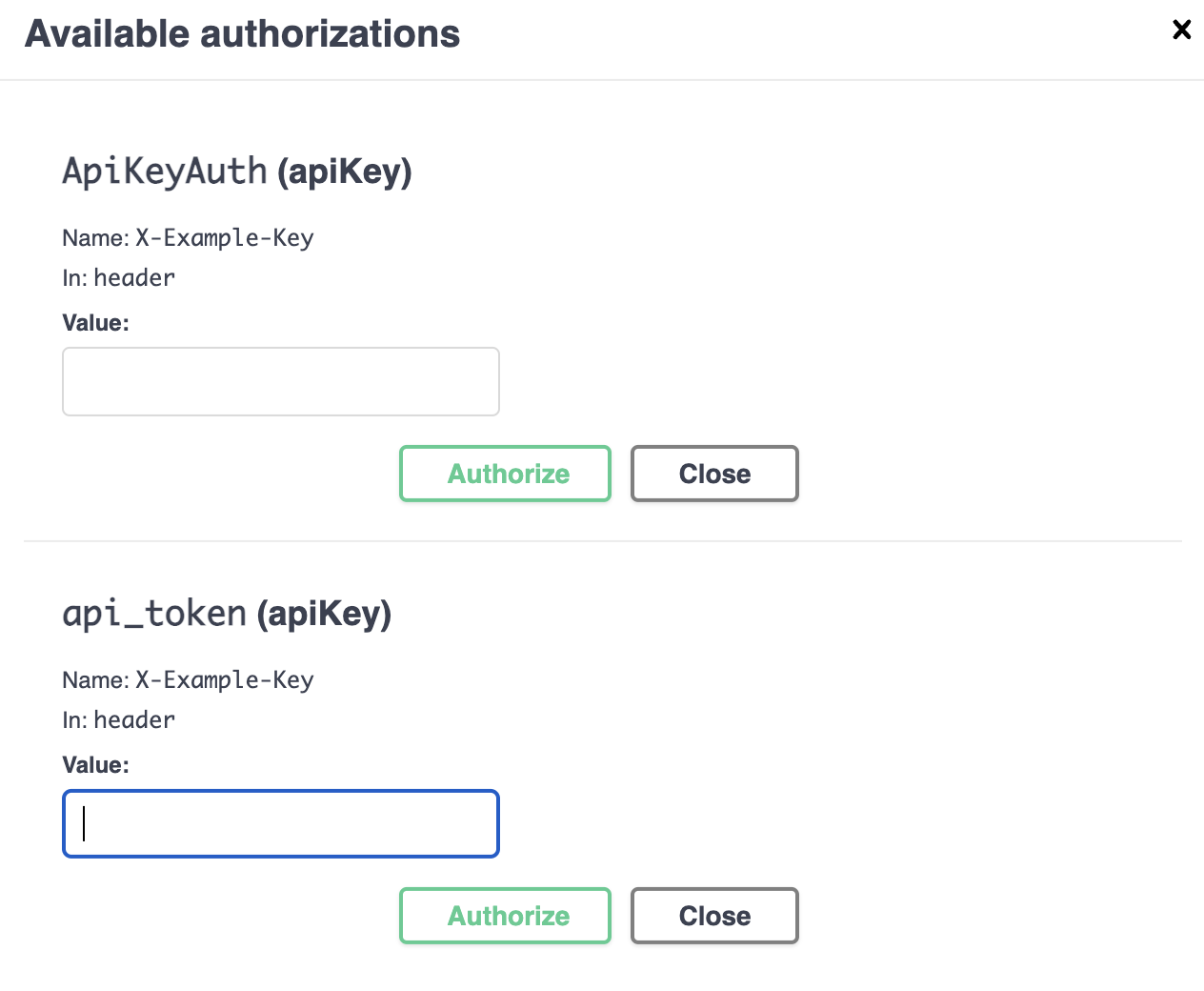Specifying a security scheme always includes a default
chouinar opened this issue · comments
When overriding the app.security_schemes value as defined on https://apiflask.com/authentication/ with a custom key, the ApiKeyAuth value is always present. ApiKeyAuth ends up a duplicate of the one I added.
On the docs endpoint, the available authorizations ends up including the unspecified ApiKeyAuth as well as my new key:

In the openapi.json file generated, the security schema looks like:
"securitySchemes":{"ApiKeyAuth":{"in":"header","name":"X-Example-Key","type":"apiKey"},"api_token":{"in":"header","name":"X-Example-Key","type":"apiKey"}}}
A minimal working app that hits this issue:
import typing as t
from flask import current_app
from apiflask import APIFlask, HTTPTokenAuth, Schema, abort
from apiflask.fields import String
from jose import jwt
app = APIFlask(__name__)
auth = HTTPTokenAuth(header="X-Example-Key")
app.security_schemes = {
"api_token": {"type": "apiKey", "name": "X-Example-Key", "in": "header"},
}
app.config['SECRET_KEY'] = 'secret-key'
class User:
def __init__(self, id: int, secret: str):
self.id = id
self.secret = secret
def get_token(self):
header = {'alg': 'HS256'}
payload = {
'id': self.id
}
return jwt.encode(
header, payload, current_app.config['SECRET_KEY']
).decode()
users = [
User(1, 'lorem'),
User(2, 'ipsum'),
User(3, 'test'),
]
def get_user_by_id(id: int) -> t.Union[User, None]:
return tuple(filter(lambda u: u.id == id, users))[0]
@auth.verify_token
def verify_token(token: str) -> t.Union[User, None]:
try:
data = jwt.decode(
token.encode('ascii'),
current_app.config['SECRET_KEY'],
)
id = data['id']
user = get_user_by_id[id]
except Exception:
return None
return user
class Token(Schema):
token = String()
@app.post('/token/<int:id>')
@app.output(Token)
def get_token(id: int):
if get_user_by_id(id) is None:
abort(404)
return {
'token': f'Bearer {get_user_by_id(id).get_token()}'
}
@app.get('/name/<int:id>')
@app.auth_required(auth)
def get_secret():
return auth.current_user.secretDesired behavior: Specifying a security scheme should only include defined keys. Or there should be some way to exclude ApiKeyAuth. I did find a way to make the UI not display it by adding "ApiKeyAuth": {} to the definition, but it still appears as an empty object in the openapi json.
Some additional context - building an API with multiple HTTPAuthToken objects defined with different header values. We want to keep the naming specific and not have a generically named ApiKeyAuth value.
Environment:
- Python version: 3.11.0
- Flask version: 2.2.3
- APIFlask version: 1.2.3
Hi. The app.security_schemes is used to add custom security schemes when using third-party auth libraries (maybe it should be named with app.additional_security_schemes :P). When using the HTTPBasicAuth or HTTPTokenAuth, the corresponding security scheme will always be generated automatically.
For your use case, I think we could add a parameter to the HTTPTokenAuth class. Something like this:
auth = HTTPTokenAuth(header="X-Example-Key", security_scheme_name="api_token")
auth2 = HTTPTokenAuth(header="X-Example-Key", security_scheme_name="api_token2")What do you think? Will this meet your needs?